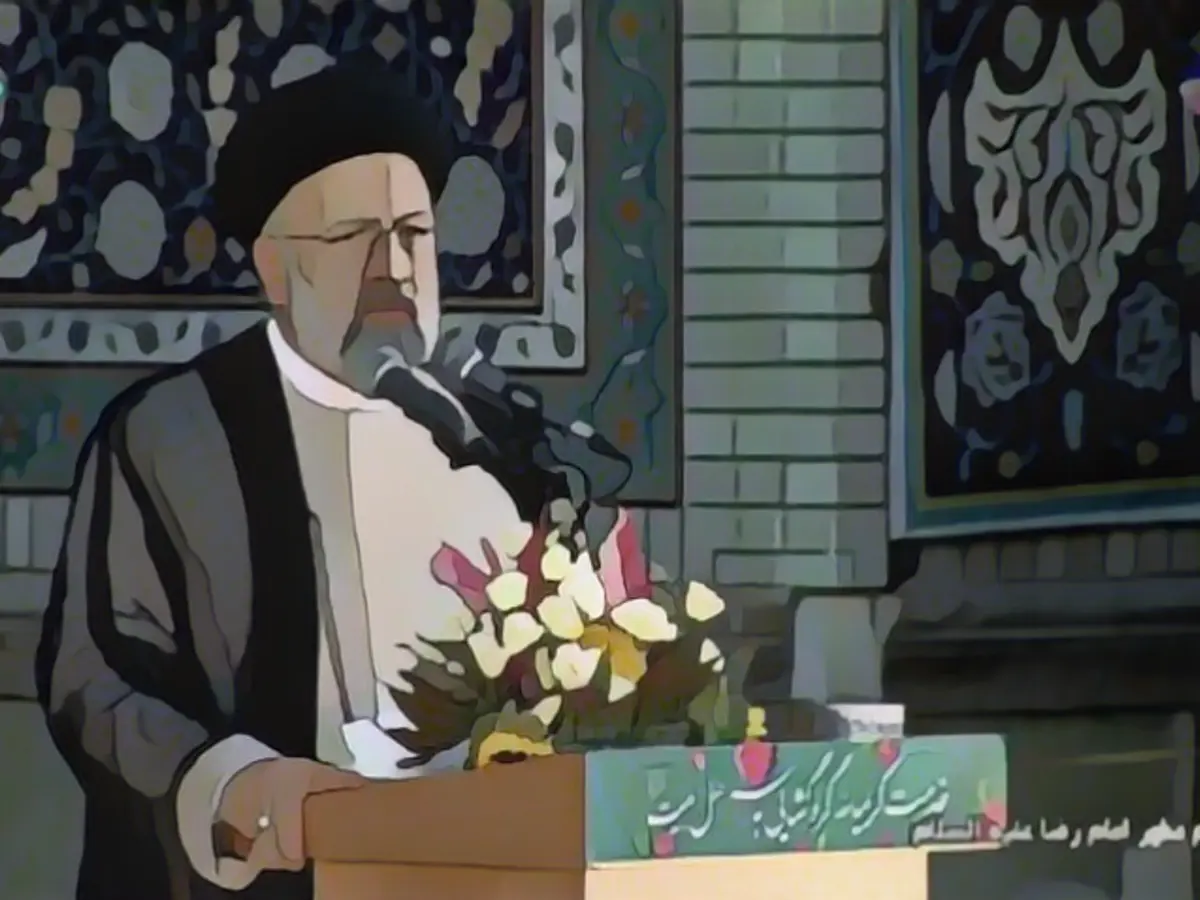Title: Ibrahim Raisi: The Controversial New Leader of Iran
Intro: Ibrahim Raisi, the current president of Iran, took office in August 2021, and his presidency has sparked controversy both domestically and internationally. Born on December 14, 1960, in Mashhad, Iran, Raisi has a long history in the Iranian political landscape, serving as both a judge and prosecutor.
Background: Raisi was born into a religious family with deep Islamic roots. His father was a religious leader, and his mother was a member of the prominent Hodadad family. Raisi's education includes attending Qom Seminary and obtaining a law degree from Shahid Motahari University. He has been married to Jamileh Alamolhoda since 1983, and they have two daughters.
Controversial Career: Raisi's career has been marked by accusations of human rights abuses, particularly during his time as a prosecutor during the Iran-Iraq War. He was allegedly a member of a "death commission" responsible for the extrajudicial executions of thousands of political dissidents in 1988. Despite these allegations, Raisi has maintained a close relationship with Iran's supreme leader, Ayatollah Ali Khamenei, and has been a critic of Western engagement.
Human Rights Record: Raisi's presidency has been marked by a crackdown on human rights, including the arbitrary detention of peaceful dissidents, human rights defenders, and members of minority groups. This has led to widespread criticism from international human rights organizations.
Internet Censorship: Raisi has continued to enforce strict internet censorship, including blocking popular social media platforms like Instagram. This has been part of a broader crackdown on online freedom, which has been criticized by international observers.
Nuclear Policy: Raisi has indicated that Iran will honor the 2015 nuclear deal if an agreement is approved by Supreme Leader Ayatollah Ali Khamenei. However, he has also increased uranium enrichment and limited international inspections, which has heightened tensions with Western countries.
Western Engagement: Raisi's presidency is likely to harden Iran's tone toward the West. He has emphasized the need to lift oppressive sanctions and has sought to establish ties with neighboring countries while maintaining a rational and prudent approach to international relations.
Regional Confrontation: Under Raisi, Iran has continued its confrontational stance with Israel, including launching missile attacks. This has escalated regional tensions and further isolated Iran diplomatically.
Impact on Leadership Succession: The death of Raisi, who was tipped to become the next supreme leader, has complicated the succession plan of Ayatollah Ali Khamenei. This could lead to further instability and potentially more aggressive foreign policy actions as different factions within Iran vie for power.
International Pressure: The international community has continued to pressure Iran over its human rights record and nuclear activities. The recent protests in Iran following the death of Mahsa Amini have highlighted these issues, with many calling for increased pressure on Iran's ruling clerics.
Conclusion: Ibrahim Raisi's presidency has solidified Iran's hardline stance on both domestic and international issues, exacerbating human rights concerns and escalating regional conflicts. The international community remains vigilant about these developments, particularly given the potential for further instability in Iran's leadership succession process.
Insights: 1. Raisi's human rights record is controversial, with accusations of involvement in the extrajudicial executions of thousands of political dissidents in 1988. 2. Raisi's presidency has marked a hardening of Iran's stance toward the West, with increasing tension over nuclear activities and human rights issues. 3. The recent protests in Iran following the death of Mahsa Amini have highlighted human rights concerns and increased international pressure on Iran's ruling clerics. 4. Raisi's succession as the next supreme leader has been complicated by his death, potentially leading to further instability within the Iranian political landscape. 5. The international community has continued to pressure Iran on human rights and nuclear issues, with the potential for further escalation in the face of Iran's hardline stance.
Reference(s): 1. "Iran's Missile Attack on Israel: An Analysis". Stratfor Worldview. (2021). 2. "Ibrahim Raisi's Presidency: Implications for Iran and the Region". The International Institute for Strategic Studies. (2021). 3. "Iran Protests: What You Need to Know". BBC News. (2022). 4. "Iran's Hardline Leader Claims Victory in Election". Al Jazeera. (2021).







